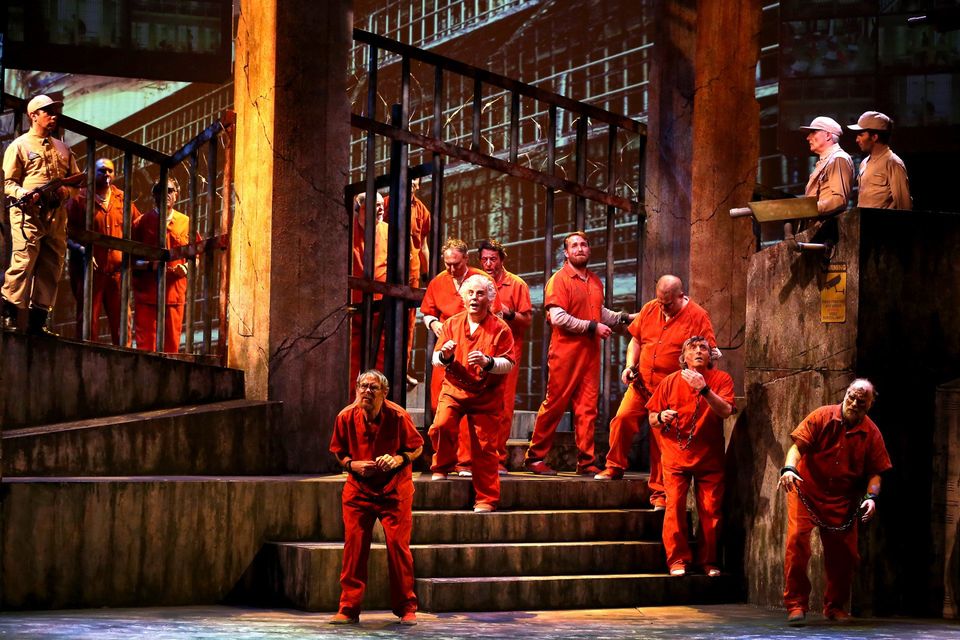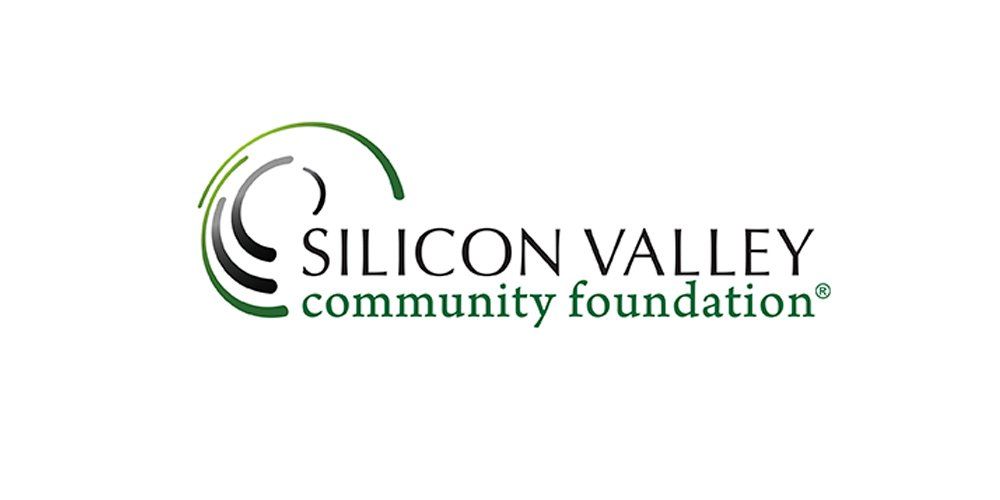Opera in the time of COVID19
Living with it and planning for when it's finally over.
Welcome to the West Bay Opera blog!
This new communications channel comes to you courtesy of COVID-19. If the pesky virus hadn't barged into the scene a couple of months back, we'd now be too busy with preparations for Verdi's La traviata to worry about writing a blog. Alas, we're no longer busy with Traviata. Instead, we're busy trying to find a path forward in the fog of COVID-19.
Whether you are a performer, a member of the audience, a volunteer or financial supporter, this blog is one place where we'd like to welcome your thoughts and your opinions and perspectives. We want to make it a safe place, away from social media fads and ever-changing user interfaces and rules. Just a simple blog for you to type in whatever thoughts you want to share, in a setting of mutual respect and consideration for each other; a place where we can share our love of opera. This isn't intended as a temporary channel. We hope you'll want to continue to check in well after this health emergency is over.
So, where are we now at WBO, in our struggle with COVID-19? And where are we headed?
This is a big topic. If you’re reading this, chances are you’ve been thinking about it too, and you realize it is not easy to get our arms around this. We don’t do pandemics very often. So, with apologies for the length of the post, here’s an overview of this fight, in three rounds.
Opera vs. COVID-19 - Round 1: Awareness and Response
We all know this part. The virus hit. It took a little while to sink in, but pretty soon it became clear that there was only one thing to do: shut everything down and shelter in place. We went into survival mode. We cancelled productions. It’s been very painful. No need to rehash it.
COVID: 1
Opera: 0
Opera vs, COVID-19 – Round 2: Economic Rescue
It's hard to pull back and develop any perspective on how to move forward right after the asteroid hits, but we're all trying. Many questions have come up. We've asked them and you've asked them too. How are the singers and musicians and designers and crew members going to survive while the theaters are closed? What kind of damage will COVID19 do to our vibrant but delicate local performing arts ecosystem? Will people move away? Will they find something else to do with their lives? Will we lose that extraordinary talent pool?
To put it in perspective, opera is a complex, expensive and hard-to-master 400-year old art form that has survived the Napoleonic wars, two World Wars, the Cultural Revolution, and competition from movies and TV and even Netflix. So, I predict we will survive this emergency too.
It may be true that all politics is local, and we all certainly must do what we can to prevent contagion and help others in need, but the fact remains that an event of this magnitude can only be effectively addressed at the national level. Individuals with buckets can’t stop a flood. Desperate situations call for desperate measures. The trillions of dollars in rescue programs swiftly approved with large bipartisan majorities in Congress are proof that this is so.
And it is also a fact that the money that has been approved is not enough and it doesn’t seem to have been distributed very fairly. Everybody, from United and Chevron to the corner bakery, needs help. What about the performing arts? "They'll have to wait.” “In a national crisis, there's no money for entertainment .” “We can't pack people together in a theater and endanger their lives.” “There's always Netflix." With small variations, that's the message we hear from every public health expert, every economist, and every politician turned futurologist. We are not an essential service, and in some people’s minds, perhaps we’re a luxury. You know better, because you know, understand and love opera. But we are in a small minority.
I've argued for years that what WBO does is not entertainment. If you've heard my pre-show pitches, I've often pointed out that opera is the cheapest and most efficient form of group therapy we have. The opera theater is a sort of sanctuary, certainly a communal experience. You spend three hours in the dark, laughing and crying together with 400 other strangers: opera, as Leoncavallo put it, is a slice of life . And you leave the theater renewed, edified, turned into more insightful and empathetic person. There may be a modicum of entertainment mixed in, but there's a lot more than that, and it's very meaningful, dare I say perhaps even essential to life. We can't live on food and drink alone. I think of the Germans at the end of WWII flocking to churches with no roofs, to hear orchestral concerts in the freezing cold. Why did they do it? Because the performing arts can lift our spirits in ways that Round Table and Amazon.com can't. Now that the virus has taken away our ability to touch and embrace each other, we need what music can do to our souls more than ever.
So, how much money is in the rescue package for opera companies? No money was reserved for the performing arts. Why should we assume that while everyone lines up for rescue package checks, entire opera companies should be rescued by private charitable donations? Well, largely for the same reason we've needed to fundraise for many decades before this: opera doesn't even enter the consciousness of most people. Out of sight, out of mind.
The major banks have been put in charge of the rescue package loans and are working primarily with their bigger clients. Several major banks, including CHASE, which has been our bank for a decade, did not even accept applications for the second round of rescue loans, claiming that they had many unprocessed applications from the first round. It’s a bit of a scandal. I predict that books will be written about this.
As far as West Bay Opera is concerned, though, we have a Darwinian advantage in this terrible crisis. Like a native species, we’re actually used to thriving on the financial edge, even when the economy is firing on all cylinders. We’ll survive this crisis too, because we know how to stretch every penny. We’ve hibernated before. It’s in our DNA. Like ants and beetles, we'll probably still be around after the polar caps finally melt, putting on a Verdi festival.
But as the COVID19 struggle drags on into next year, and especially if we are not allowed to return to the theater for a while, it will be more important than ever to remember that we depend on our community’s generosity to stay afloat financially.
So, Round 2
COVID: 1
Opera: 0
Opera vs. COVID19 - Round 3: Back to the future or a new normal?
It has become increasingly clear that normalcy will not return to our lives anytime soon. Rather, we will have to work together to define a new normal .
The million-dollar questions are “how long will this last?” and “how different will the new normal be?” Nobody knows for sure. But we do know a few things, from past pandemics. We know that eventually, there will be a vaccine. We know that the virus will mutate, and vaccines will be developed for the mutations. And we expect that eventually there will be a return to some form of normalcy. We are not looking at the demise of large gatherings forever. Long as this period may be, terrible as it may be in sharpening economic inequality, humankind is not going back to the dark ages. There will be live opera performances again in the not too distant future. We need to be planning for that moment, and we are.
Cutting through the hype, it seems as though the realistic timeline for a vaccine is likely to be at least 18 months. It could be sooner, we can always hope for a miracle, but we need to be realistic. It also seems likely that we will learn a great deal about this virus from the current experience, and that new treatments could turn COVID-19 into a severe condition rather than a lethal one, for those who get sick. We may also be able to figure out in a lot more detail what techniques work best for preventing contagion in larger gatherings. So, it is almost certain that there is going to be a post-COVID-19 scenario where gatherings are again possible. And even before a vaccine, we could evolve protocols to allow safe gatherings, but we are not clear yet about what that would entail.
What is clear to us is that the health and safety of audiences, performers, staff and volunteers will be our main focus as we consider reopening the theater for live performances. People will make their own individual choices about the level of risk they are willing to tolerate for the sake of attending a live performance, whether they are in the audience or onstage. So, audiences and artists will have a major say. How would you feel about having your temperature checked in order to be allowed into the theater? What would we do about “symptomatic” people? We can all relate to people coughing at an opera performance. How would we handle them? What effect will all this have on people’s willingness to attend opera? What effect will this have on our ability to enjoy live opera? We don’t know yet. But we do know that we will reopen only when it is safe to do so. We will not take a chance with the health of our audience members, artists, staff or volunteers.
There are big questions as to whether we can have a 2020-21 season or what shape it will take. While it may be possible that things will have quieted down by mid-October, the reality is that in order to open an opera in mid-October, the production process needs to be in full swing in mid-August, and that seems rather unlikely, given where we are today with infection and mortality rates nationwide. Our next offering would be in February, but the CDC tells us to expect the return of the virus in the winter. May 2021 seems more likely, with the return of warm weather. But who can make predictions for a year from now? We plan to make decisions this month regarding the coming season, and announce them in early June. We can plan, but we can’t promise.
So, what are we planning to do for the time being? Here are some details.
Remote Collaborations: People have approached me to ask about technology and remote collaborations. I personally do not believe in remote performances stitched together from individually recorded musicians playing from their homes. It can be done, as a special project, but as a modus operandi it is artistically very limiting. The magical spontaneity of performance is lost. That cannot be the future. We are open to all possibilities, but let me be clear: opera happens in a theater with an orchestra in the pit and a live audience. Those are non-negotiable components. We need the audience’s energy and commitment in order to perform. It most certainly will not be the same if we try to do it without an audience. A good amount of the energy and the intimacy of our wonderful theater are lost in translation when you watch a performance on video.
Chamber Opera: We are busy at work on potential smaller-scale works that will be able to stream or perhaps even perform in front of very small audiences, if gatherings of maybe up to 50 people are eventually allowed. One potential avenue for this is the West Bay Opera NOW (New Opera Works) program. This is a new program we started a couple of years ago, focused on operas by contemporary Latin American composers. Three or four singers, and three or four instruments. Small-scale but ambitious works by top-notch composers, and the opportunity to experience live performance in an intimate setting. Almost like the beginnings of opera back in the 1600’s. We will have more details about this in the coming weeks.
Archival Video: We will be sharing a number of videos of past productions with you. We are putting a good amount of effort and resources into creating multi-camera edits with improved sound and English supertitles using archival footage, and we have many wonderful productions that we want to share with you. Last week, we released the last scene of the third act of Nabucco , including the famous Va pensiero chorus. We will be releasing clips on a weekly basis for the next few months.
Archival Photography: We are preparing to launch a “tag that photo” program, which will allow members of the community to participate in identifying artists on production photographs from the WBO archives dating back to the mid 1950’s.
Opera in the Schools: We intend to restart the Opera In the Schools (OITS) program as soon as it is feasible to do assemblies in the schools again. The program typically runs between February and late May. We may be able to push it to April/May, to take advantage of further relaxation of social distancing rules over the next year. The program will likely reach over 20 schools and give thousands of children their first glimpse of what could become a wonderful life-long relationship to opera.
Training Programs: West Bay Opera has a legendary volunteer culture. The current downtime gives us an opportunity to consider structuring training programs that could improve the skillsets of our volunteers in areas like set and costume building, to help us keep our costs down and further strengthen our community ties, while providing some gainful employment for our technical people and designers.
As you can see, we won’t be exactly idle. These efforts, an others, will bridge us over to the moment when we can return to the theater to enjoy live performances again. And what a joyous moment that will be! We can’t wait.
So, no score for Round 3, since it’s still developing. But I predict we will win.
Until our next post, please stay healthy, consider a financial contribution if you are able to make it, and do share your thoughts with us in this blog.


